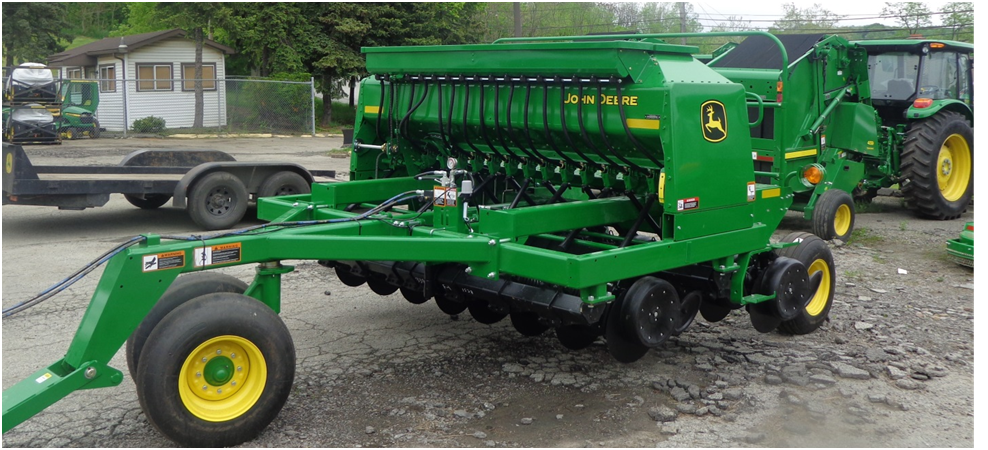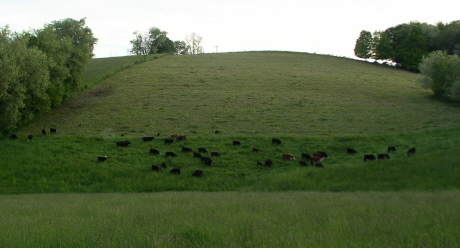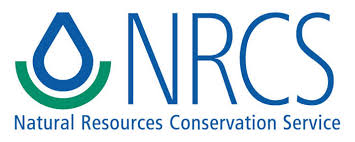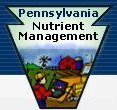Washington County Agricultural DivisionSW PA ACAP VideoAgriculture Conservation in Action: ACAP Success in Southwest Pennsylvania
Click on the "SW PA ACAP Video" link above to view the video DWashington County Conservation District Agricultural Division
The District office is located in the same building as the USDA agricultural offices. This provides a one stop shopping center for the farmers of Washington County and enables our employees to work closely with the USDA agencies. Washington County, according to the USDA National Agricultural Statistics Service (2012), is ranked 1st in the number of sheep and lambs, coming in 1st in the amount of wool sold, and 1st in the number of beef cattle and beef farms. The County is 2nd in acres of all forage production, 2nd in the number of sheep farms, 2nd in acres of hay harvested. The county also ranks 3rd in the number of goat farms and 3rd in total farms of mules, burros, and donkeys. In addition, we have a tremendous horse industry, both pleasure and professional, with Washington County ranking 3rd in the state for number of horses and ponies. Agricultural Conservation Assistance Program (ACAPProgram application can be found - here
Nutrient Management ProgramIn addition to the Nutrient Management funding provided by the PA Department of Agriculture for conservation districts, the PDA also made funding available in 1999 for the hiring of Agriculture Conservation Technicians. The purpose of these technicians was to augment the services provided by the USDA. We continue to employ several agricultural technicians to provide service to Washington County. Within Washington County, 6,067 acres have been covered by approved Nutrient Management Plans (as of 2014).
Manure Management Regulations in PAIn October of 2011 The PA DEP published new guidelines for manure management in Pennsylvania. Any operation that generates or applies manure no matter how small is now required to have and follow a written manure management plan. The plan does not need to be approved, but a copy of it must be available on the farm.
Large scale farming operations defined as CAO’s (concentrated animal operations) or CAFO’S (Concentrated animal feeding operations) are required to have a more detailed plan that is written by a certified Nutrient Management Specialist, and approved by the local Conservation District. Assistance is available at the Conservation District to help you determine if your farm falls into either of those categories. The DEP has released a Manure Management Manual that can be completed by farmers at no cost. The manure Management Manual and workbook can be found on the PA nutrient management website which is available through the Manure Management Plan Guidance link on the right side of our page. Hard copies are also available at the Conservation District Office. If you have any questions about the workbook please feel free to contact us, we will be more than happy to help you complete your plan. PA One StopPA One Stop is a new resource to help you meet the regulatory requirements of your Manure Management Plan and your Conservation Plan.
The Mapping Module (which is up and running, available to use!) will allow you to generate high quality maps using aerial imagery. These maps are saved online for future editing and can also be printed to keep hard copies with your plans. Click here for more information No-Till SeederThis drill was purchased by the Washington County Conservation District to encourage and promote no-till planting which reduces soil erosion and benefits water quality. The John Deere No-Till Drill is a pull type with a working width of 10 feet. It is equipped with a grain box with agitator, a grass seed box, a tongue caster wheel hitch, front rank lock-up and 16 single disk opener units. The drill does not have a fertilizer box or markers. No fertilizer should be used in drill.
If you are interested in borrowing the seeder, please read the guidelines, then call 724-705-7098. Additional copies of forms can be found in the column to the right.
Project Grass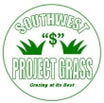
The Conservation District supports and promotes the use of rotational grazing systems. Technical assistance is provided by the NRCS, our Ag Office and the Project Grass Coordinator for the region, J.B. Harrold. Click the Southwest Project Grass link to the right for more information.
Additional Resources and Information
Conservation Stewardship ProgramCSP is a working lands conservation program administered by the Natural Resources Conservation Service (NRCS) and available on a nationwide basis. CSP offers technical and financial assistance to farmers for maintaining high standards of environmental stewardship -- including soil, air, and habitat quality, water quality and quantity, and energy conservation. Assistance is available for both the active management of existing conservation systems and for implementing new conservation activities on land in agricultural production. Participants earn CSP payments for conservation performance -- the higher the performance, the higher the payment.
Environmental Quality Incentive ProgramEQIP is a voluntary conservation program that helps farmers and owners of agricultural land, including forest landowners, reduce pollution and improve natural resources. EQIP provides technical and financial assistance to help people plan, install and implement structural, vegetative and management conservation practices on agricultural land and forest land. The former Wildlife Habitat Incentive Program was folded into EQIP. Financial assistance is provided through practice payments based on average costs to implement conservation practices. Payment rates are listed on the annual Practice Payment Rate Schedule. Advance payments for socially disadvantaged, beginning and limited resource farmers, Indian tribes and veterans have been raised. EQIP contracts can be as short as one year with a one year maintenance period. Payment limitations are set at $450,000 with no ability to waive.
|
No-till Seeder:
Guidance:
Nutrient Management:
PA's Nutrient Management Act
Nutrient Management Planning Overview Manure Spreader Calibration Proper Soil Sampling Methods Farming Practices:
Prime Farmland Soils
Farmland Soils of Statewide Importance Fencing Contractors Equipment Contractors Livestock & Poultry Mortality Disposal in PA Manure Management:
Manure Management Manual Guidance
Manure Management Plan Workbook The Basics of Manure Management Requirements The basics of Agricultural Erosion & Sedimentation Requirements Soil Erosion and Sediment Control Manual for Agricultural Operations Additional Information:
|


